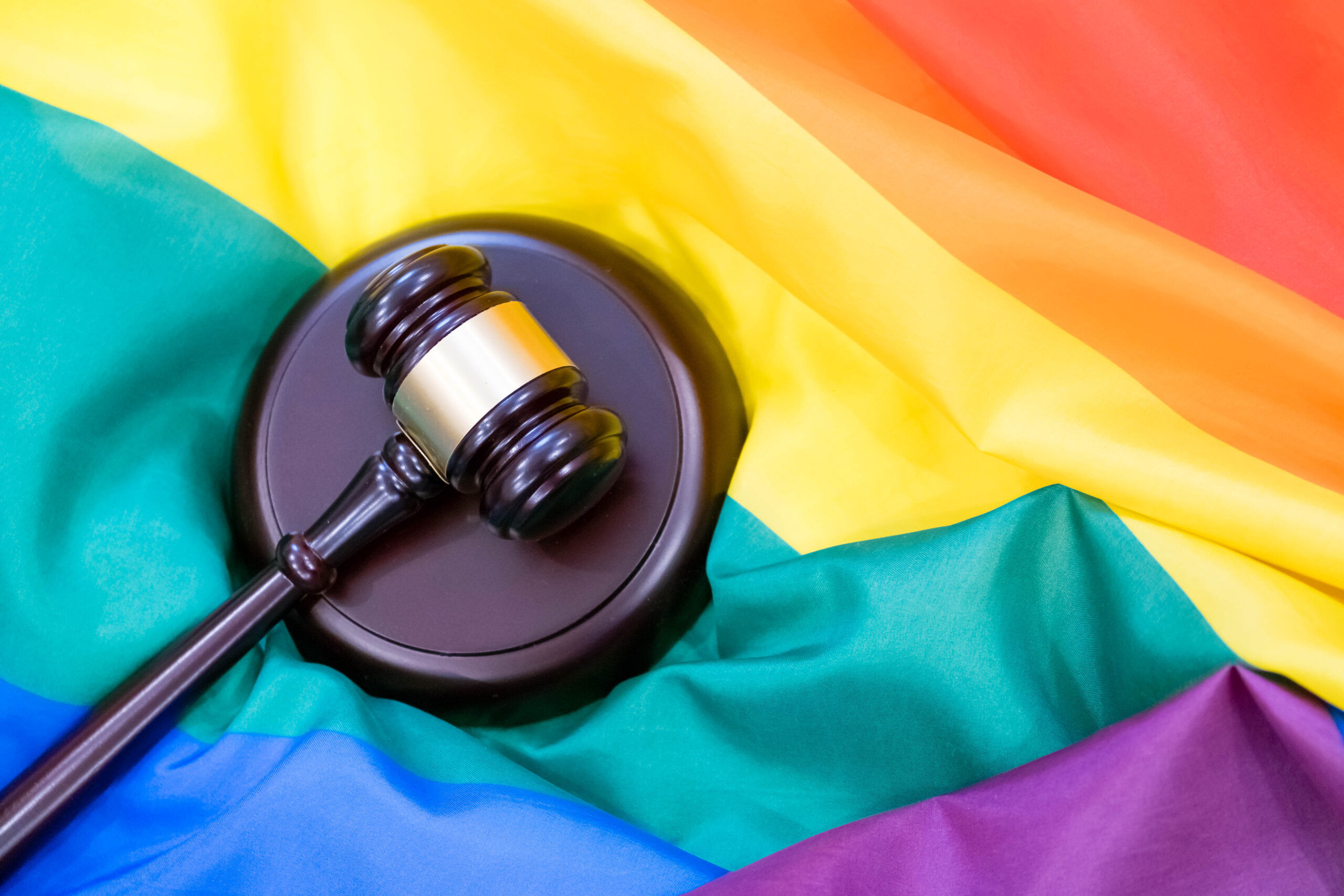As of Wednesday, New Hampshire is the latest state to outlaw the “gay panic” defense.
In gay panic defenses (also known as trans panic and LGBTQ+ panic defenses), defendants in murder and assault trials claim that they were motivated by their shock and outrage at receiving sexual advances from a gay or trans person, aiming to be acquitted or have their charges lessened. It’s a legal strategy fueled by homophobia and transphobia, appealing to a jury’s bigotry to excuse violent crimes.
The defense has mixed success — and given that it’s always employed in combination with other defenses, it’s difficult to track or articulate exactly how often it’s used. It was most famously used in the Matthew Shepard murder trial. In 1998, 21-year-old Shepard was brutally beaten to death by two men in Laramie, Wyoming. His murderers claimed that Shepard had made sexual advances on them, prompting them to attack him. Thankfully, the jury rejected that claim.
Related:
Poll After Poll Shows Transphobic Panic is More About Cis Male Fragility than Women’s Rights
In actuality, only 25% of cisgender respondents surveyed said they view trans people negatively.
Regardless of the defense’s success in court, however, its very existence poses a threat to LGBTQ+ people. As the LGBTQ+ Bar notes on its website, “Every time a defendant presents a narrative blaming LGBTQ+ individuals for the violence they endure, including murder, they bolster harmful stereotypes and justify alarming rates of anti-LGBTQ+ violence in the United States.” The LGBTQ+ Bar’s research shows that “juries have acquitted dozens of defendants for crimes ranging from assault to murder” using the gay panic defense.
In 2013, the LGBTQ+ Bar introduced a resolution to outlaw gay panic defenses, which was unanimously approved by The American Bar Association. Since then, 16 states and the District of Columbia have banned the gay panic defense, with New Hampshire being the 16th.
Yes, you read that right. Out of 50 states, only 16 have banned the gay panic defense for murder and assault. That means it can still be employed in — bear with me, here — Alabama, Alaska, Arizona, Arkansas, Delaware, Florida, Georgia, Idaho, Indiana, Iowa, Kansas, Kentucky, Louisiana, Massachusetts, Michigan, Minnesota, Mississippi, Missouri, Montana, Nebraska, New Mexico, North Carolina, North Dakota, Ohio, Oklahoma, Pennsylvania, South Carolina, South Dakota, Tennessee, Texas, Utah, West Virginia, Wisconsin, and Wyoming.
Related:
That means only 43% of America’s LGBTQ+ population is protected from having a gay panic defense used by their assailants, analysis by the Movement Advancement Project (MAP) shows.
“These defenses are based in irrational fears and prejudice toward LGBTQ people, and they imply that violence against LGBTQ people is acceptable or understandable under certain conditions,” reads a statement on MAP’s website.
In July of this year, a federal bill to ban gay panic defenses nationwide — the LGBTQ+ Panic Defense Prohibition Act of 2023 — was introduced to Congress by Sen. Edward Markey of Massachusetts. Similar bills have been introduced in recents years, all having died in committee.
Don't forget to share:
Help make sure LGBTQ+ stories are being told...
We can't rely on mainstream media to tell our stories. That's why we don't lock our articles behind a paywall. Will you support our mission with a contribution today?
Cancel anytime · Proudly LGBTQ+ owned and operated
Read More in Impact
The Latest on INTO
Subscribe to get a twice-weekly dose of queer news, updates, and insights from the INTO team.
in Your Inbox














